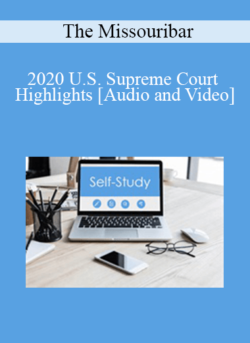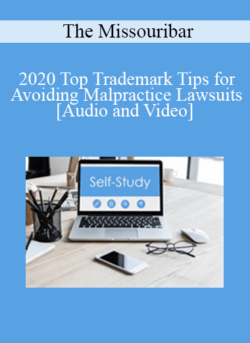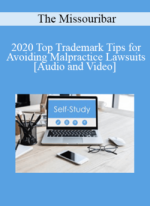[Instant Download] – Immediately deliver the download link after receiving the paymentPurchase The Missouribar – 2020 Top Trademark Tips for Avoiding Malpractice Lawsuits courses at here with PRICE $90 $21Practice Area:Business & CorporateFormat:Audio and VideoDespite being the most valuable assets many businesses and organizations will ever own, trademarks are frequently overlooked by general practitioners. Unfortunately, failing to address trademark issues during the business formation stage, before the launch of new products/services, or as part of a business sale or acquisition, can lead to dire consequences, wasted money, and irate clients. Of course, this is a perfect recipe for a bar complaint or malpractice lawsuit to land on your desk. Thankfully, experienced trademark attorneys Morris Turek and Sandra Wunderlich are here to show you how implementing just a few practice points can prevent this from happening to you. Key Points: Why a search of the Missouri Secretary of State’s corporate records is irrelevant for trademark clearance purposes The differences in trademark rights granted by the common law, state trademark registrations, and federal trademark registrations How to spot and proactively prevent expensive and devastating trademark issues from arising during the course of representing a business or organization The differences between a comprehensive federal trademark search and a “knockout” or cursory trademark search and when to use each type Understanding the benefits and protections of federal trademark registration with the United States Patent and Trademark Office (USPTO) Preserving and evaluating the value of trademark rights in business transactions. Speakers: Sandra J. Wunderlich, Tucker Ellis LLP, St. Louis and Morris Turek, YourTrademarkAttorney.com, Chesterfield Self-study does not qualify for Kansas credit.Note: This material qualifies for self-study credit only. Pursuant to Regulation 15.04.5, a lawyer may receive up to six hours of self-study credit in a reporting year. Self-study programs do not qualify for ethics, elimination of bias or Kansas credit.
 The Missouribar – 2020 U.S. Supreme Court Highlights
₹3,486.00
The Missouribar – 2020 U.S. Supreme Court Highlights
₹3,486.00
 The Missouribar – 2020 The Basics: Special Needs Trusts & Administration of a Ward’s Estate
₹3,486.00
The Missouribar – 2020 The Basics: Special Needs Trusts & Administration of a Ward’s Estate
₹3,486.00
The Missouribar – 2020 Top Trademark Tips for Avoiding Malpractice Lawsuits
₹3,486.00






